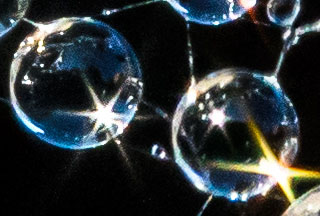A book about how we’re all connected
Reader’s Quotes
“I love the character in the book and his adventures.”
“Thank you for writing this book and offering if for review, since it has helped me though a time of transition in my life.”
“The accounts and the stories are so genuine.”
“(this book) really challenged and demystified some inner and deeper issues that I was struggling to understand in life… lots of intricate circumstances in my life and others become easier to comprehend”
“I am not quite sure how to say this without sounding trite… The book is just what I needed … My stepgrandfather was strict, in the Prussian sense of the word. I was raised in the same vein. My childhood was spent in terror of the man … Now I understand it all. Now I can forgive. Forgive him. Forgive myself. For this I thank you. I owe you a great debt.”
Excerpts from the Book
The Idea
“You can’t always get what you want, but if you try sometime you just might find you get what you need.” — Rolling Stones
The lyric suggests there is a difference between wants and needs. Wants are near the surface of our consciousness, resulting from well thought out plans for our lives. Needs are not so rational, emanating from an inner emotional state of which we may or may not be fully aware.
The quote implies that the reality we experience often seems to reflect those inner needs, rather than those more carefully thought out wants.
When wants and needs agree, life seems harmonious. When they are different, life seems dissonant. It might look like this, with wants and needs sometimes overlapping, sometimes not.

I’ve often noticed my external reality acting as a mirror, reflecting what was stirring within—sometimes to my discomfort, revealing feelings I’d have rather kept hidden; other times, to my pleasure, as I was taken places I hadn’t realized I needed to go.
In this book the idea is called Reflection.

Crotch Rot & Bike Racing
I found the same connection between inner emotional state and external reality in sports injuries. It’s easy, if one takes a sport seriously, to have a gap between professed wants and more ambiguous inner needs. Take for example my experiences as a bicycle racer.
In this book I tend to concentrate more on the unpleasant aspects of life, because those are the cases that are harder to understand. But when wants and needs are in harmony, the experience is joyous. In bike racing I experienced both the joy and the pain.
Bike racing, for three years, fulfilled a strong need in me to prove I could be a competitive athlete. I had grown up as always the youngest in my class, and was never really competitive, athletically, with my class mates. This is something that can affect the self-worth of a growing boy. A desire to prove myself in an athletic competitive field had been lurking about in me for a while.
I had been rock climbing, and it filled a need in me proving I could do something athletic. But it wasn’t head-to-head competition. I was ready for more.
My entry into bike racing, like most things, was not really planned. It just happened one day that a friend told me about an amateur bike race and asked if I wanted to try it. I soon became hooked, bought a good bike, trained hard, was racing in all the local races and even won a few trophies. I had become a competitive athlete.
After the first successful years, though, things stopped going so well for me in bike racing. The sport was on a tremendous upswing, and the competition was getter tougher faster than I was getting better. In the third year, despite being in the best shape of my short career, I was doing worse. It was frustrating.
I was also feeling the need to spend more time with my family—the long training hours were getting to be too much.
My wants and ego were strongly tied to continuing in bike racing, the new sense of identity the sport had given me. But my original needs that had gotten me into bike racing had been satisfied. New needs were developing that were pushing me a different direction, but my existing wants were not in tune with those changing needs. This was the set up for a perfect, painful reflection.
The result? For the first time in those three years, I developed a severe rash in my groin that made it extremely painful to sit on a bicycle seat. All sorts of medical cures failed to work. The only remedy was to get off the bike and stay off for a while.

My wants and needs were out of harmony. My self-image still wanted me to race, it felt I would lose face if I quit. But I needed to quit. The rash got me out of bike racing and let me move on to the next phase of my life. It exposed my lie of wanting to continue in bike racing.
Had I been as aware of Reflection at the time, it probably all would have been obvious to me, but it wasn’t. I professed frustration at being forced off of my bike, but I definitely felt a sense of relief.
This is often the clue for understanding, a feeling of relief, or release of some kind of pressure, when something which is supposedly bad happens to you. That feeling points at the inner needs being expressed.

Games of Chance, Scientist vs. Mystic
Having seen how reality and people’s inner selves reflect, it becomes natural to ask how the other things in our environment interact. It is a little anthropocentric to assume that people are the only things reflecting reality. Reflection might be true of not only all other living things, but maybe inanimate ones as well. While this is a staggering thought, it is exactly where modern physics is leading us according to Fritjof Capra in The Tao of Physics.
In one sense this section is a look at the light side of Reflection, but in another it is the most critical section. The fall of the cards in a either a poker game or a Tarot reading behave the same. It is here that the scientist and mystic absolutely disagree. The scientist claims probability rules, the mystic claims something deeper is at work.
It is exactly this debate that caused Jung to fall from grace with his peers, as he explored the mysteries of the I Ching and proposed there might be something to it.
Reflection can reconcile the mystic and the scientist. The mystic sees connections and meanings in the deal of the cards or the roll of the dice. The scientist sees probability, coincidence and superstition. Both can be seen as flip sides of Reflection.
From time to time professional conferences have brought me to Las Vegas where I enjoy the opportunity to try my hand at the games of chance. Being of a scientific mind, I know the odds are in favor of the house and I cannot win at Las Vegas. With this attitude I lose fast and regularly.
On one trip I decided to try to beat the odds by playing with a different set of needs. I combined my need to try something different with other’s needs to win at gambling.
I went to my friends at work and told them I would double their money in Las Vegas—or lose it all. My right pocket was my gambling pocket. I put one hundred dollars of my money in it and anyone else could invest as they saw fit. Whatever percentage of the money was originally theirs, that percentage of the right pocket would be theirs at the end.
It would certainly be a boost to my ego to double their money. Only a few people saw fit to invest, but they were people I felt had good luck, and a good sense of humor.
The conference went for a week. I nursed $25 a night for every night I was there, and, as I normally expected, the house odds kept eating away at it. I mostly played the $2 blackjack tables because you could play there the longest before losing your money.
I still had $40 in my right pocket on Thursday afternoon and I was leaving in an hour. My gambling experiment had not paid off. It was time for one more shot. I said I would either lose the money or double it.
I went back to the tables, but this time with a mission. I had a different sense. I felt like a winner. I looked for a table with a dealer that looked like a loser. I started betting $5, because I didn’t have much time. I was winning. I upped the bets to $25 and immediately got hands that allowed me to split my cards and double my bets, magnifying my winnings. In a few quick hands I had made up the losses of the week and doubled the original money.
I repeated the same trick in a casino in Australia on another business trip. After having lost all evening, I took the small amount of remaining gambling money and put it on a single 36 to 1 number on the roulette table. I won, just about exactly doubling everybody’s investment in me.
In both cases I had a sense something good was going to happen at the end of my gambling period. In both cases I came back and filled my need to pull off a neat stunt for my friends. In both cases the outcome was a perfect reflection of my inner-self.

More Reader’s Quotes
“… when I read about the disharmonious experiences that can follow the conflicts between shoulds and needs–especially on a beautiful day. I was hooked…”
“I am already using the teachings of your book to change my life and the life of those closer to me – wife & friends.”
“I love what you have done. You have taken a highly mythic abstract idea, the Net of Indra, and you have rendered it on the canvas of reality. It was your frank discussions of your personal and business relationships, wherein you explored the concept of Reflection, that breathed life into the Net of Indra.”

